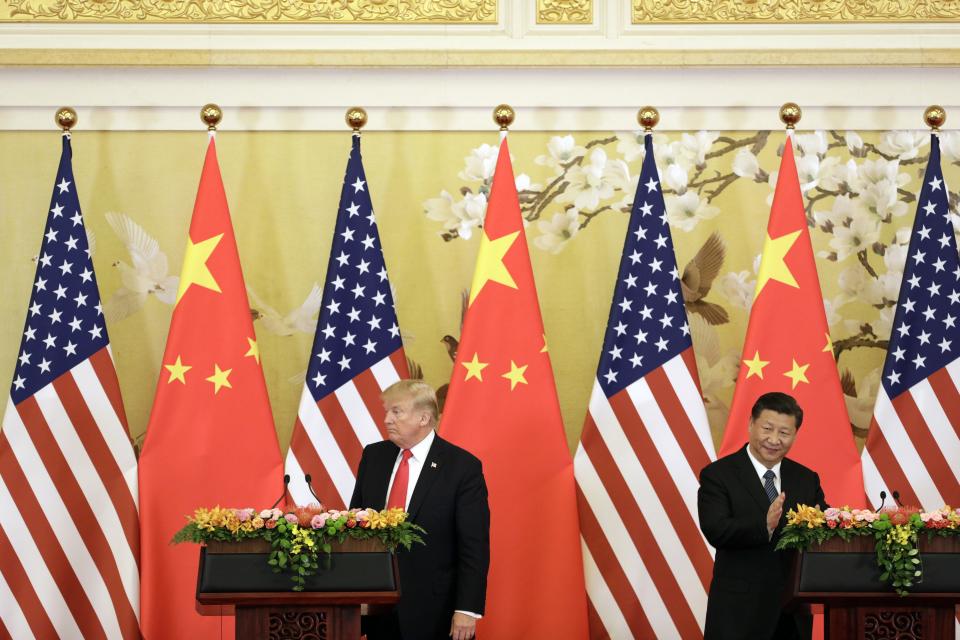GOP leader, Nixon’s son-in-law, makes the case for Trump's China tariffs
The United States had trade deficits with 102 countries in 2017, but none of those countries have drawn more attention from President Donald Trump than China, which accounts for more than half of the $566 billion deficit.
After repeatedly accusing China of foul play, Trump is expected to announce plans to levy $50 billion of additional tariffs on the world’s second largest economy on Thursday. The market is wary of a looming trade war, but taking aim at China is more than just an economic play for Trump, according to Edward Cox, the chairman of the New York Republican State Committee, who happens to be former President Richard Nixon’s son-in-law.
“Most of the countries we have large trade deficits with are allies of the U.S. That’s part of the DNA of our trade representatives, to help those countries lift themselves up after World War II in order to show what the U.S. offered, which was capitalism, free market and democracy, was preferable to communism around the world,” said Cox, during an event hosted by the China General Chamber of Commerce in New York City on Wednesday, noting that Germany and Japan are among the top U.S. trading partners. “That’s why we’re willing to run those trade deficits to help those countries to lift themselves up. But China is not that kind of ally. So, the trade deficits with China are more contentious. They don’t have the same basis underneath them.”
Trump doesn’t separate trade from diplomacy

As China has experienced an economic boom and become more proactive in international affairs, Washington has been wary of the rising superpower, though China has repeatedly denied its intention to replace the U.S. as a global power.
The talk on trade has been complicated by geopolitical issues. Trump has constantly connected tariffs in Mexico and Canada with NAFTA negotiations, and talked about China’s trade policy together with issues in North Korea. This has minimized Congress’ effort. In 1962, the Office of the United States Trade Representative was created outside of the the State Department. The office of trade has been in favor of separating the commercial interests of trade from U.S. foreign policy goals.
And America isn’t always soft on trade issues with its allies, either. Trump loved comparing himself with former President Ronald Reagan when it comes to trade policy during the presidential campaign. Back in the 1980s, Japan, one of America’s closest allies, was targeted by the U.S. Reagan imposed a quota on the number of Japanese cars that could come into the U.S. every year, slapped a 45% tariff on Japanese motorcycles and a 100% tariff on Japanese computers, televisions and power tool, which had mixed impact on the U.S. economy.
Trump’s view on trade differs from former presidents in one major way, according to Cox. “Nixon taught me that free trade is good policy and bad politics, but Trump sees it both as bad politics but also in many cases bad policy,” said Cox, who endorsed Trump for president in April 2016. Cox had even reportedly introduced an adviser with Russian ties to Trump’s campaign.
“President Trump believes in free trade generally, but he does want to make sure it’s fair,” Cox said. “He’s gonna be very tough with retrospect to that.”
Krystal Hu is a reporter for Yahoo Finance. Follow her on Twitter.
Read more:
How Trump is making your beer more expensive

 Yahoo Finance
Yahoo Finance 
